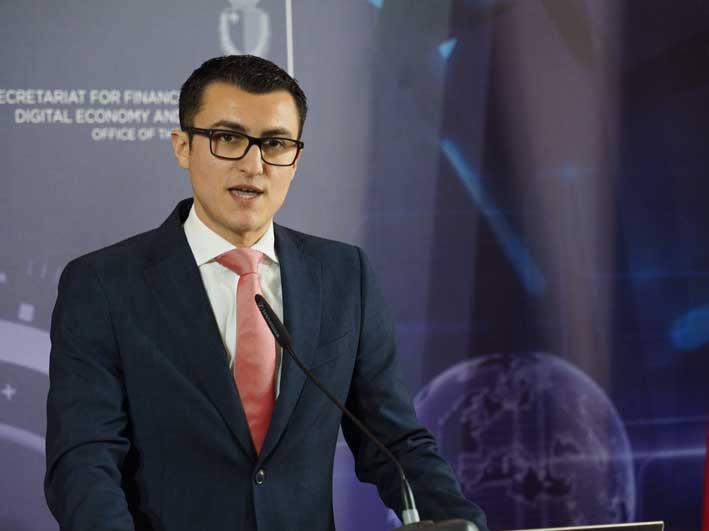Government has launched a policy document which seeks to set up the Malta Digital Innovation Authority alongside other legislation to provide legal certainty in the sphere of Blockchain technology and by extension cryptocurrencies.
Blockchain technology forms part of the wider Distributed Ledger Technology (DLT) and has so far not been regulated by any institution or body around the world. It is a technology that is an ever-growing list of records, called blocks, which are linked and secured using something called ‘cryptography’. Each record has a link with the previous record, or block, and contains a timestamp as well as transaction data.
Once the record is issued with a timestamp, it is not possible to alter or tamper with that information. While this new technology is difficult to grasp for the majority of people, in practice it could potentially bypass lengthy procedures in day-to-day life.
For instance, a music band could make use of DLT platforms such as blockchain by eliminating the need for intermediaries to receive royalty payments whenever somebody downloads their music. Transactions would occur across a peer-to-peer network, and are computed, verified and recorded using an automated consensus method.
The role of a Malta Digital Innovation Authority will take various forms, however one of the key functions would be to certify DLT platforms which provides legal certainty for companies or people who wish to make use of them.
Currently, if a company wants to make use of a DLT platform to effect cross-border payments in order to cut out central authorities and make the process less expensive and more efficient, it would have to make use of a platform that is not certified in any way.

Through the creation of the authority, this government agency would certify a particular platform, for example blockchain, and certified surveyors within the authority would verify that the information being logged on the platform, for example that X amount of money needs to go to Y company, is genuine information. Companies benefit from the peace of mind that the DLT platform they have engaged in is genuine, providing legal certainty and trust, while also making its operations more efficient by cutting out middle-men such as banks.
Parliamentary secretary for the Digital Economy Silvio Schembri addressed a press conference with various stakeholders to launch the policy document. He explained that this “historic moment” for Malta will be tackled in three steps.
Step one deals with setting up the authority, step two deals with launching a Bill that will set out the regime for the registration of Technology Service Providers and the certification of Technology Arrangements. Lastly, step three will launch a Bill that will set out the framework for Initial Coin Offerings (ICOs) and the regulatory regime on to the provision of certain services in relation to virtual currencies.
ICOs are ways for new digital currencies to create financing, by offering investors the new currency in exchange for other established ones such as Bitcoin and Ehterium.
The intermediaries subject to the virtual currency Bill include brokers, exchanges, wallet providers, asset managers, investment advisors and market makers dealing in virtual currencies (to be issued by the MFSA).

Schembri explained that in setting up of the new authority, promoting government policies that favour the development of Malta as a hub for new and innovative technologies, including their adoption in public administration by the government technology hub will be among the goals.
In addition, the aim is to promote innovation in the design, implementation and utilisation of new technologies while also fostering innovation through the creation of a successful ecosystem based on the utilisation of cutting edge technology in useful business cases and the adherence to best implementation practices.
Further to this, protecting Malta’s reputation while taking into account Malta’s international commitments, for example to implement anti-money laundering directives, is also another aim of the new authority together with acting as a consultative body.
There are three types of DLT platforms: those designed for private consumption such as an internal payroll system for a large company, private DLT platforms that are designed for consumption by regulated entities such as a financial institution using a platform to be used by its clients and lastly, a public DLT platform that share consensus mechanisms such as Bitcoin and Ethereum.

Schembri provided multiple examples of how DLT platforms could be used in practice, such as utilising blockchain technology to record and manage the movement of goods and related invoices and thus significantly mitigating the risk of errors and the opportunity to alter invoice values or recipients.
He explained that it perfectly complements the supply-chain allowing the tracing of products to its source.
Schembri described the process of consulting with all relevant stakeholders, national authorities including the Financial Intellifence Analysis Unit (FIAU) and the police, together with local industry players and international ones, while also consulting with international authorities before launching the policy document.
For the next three weeks, the public is free to provide feedback on the ideas and mechanisms described. Following this, the three bills to set up the authority, to set out technology service provision registration and the cryptocurrency bill will be presented to Parliament.
Photos by Michael Camilleri